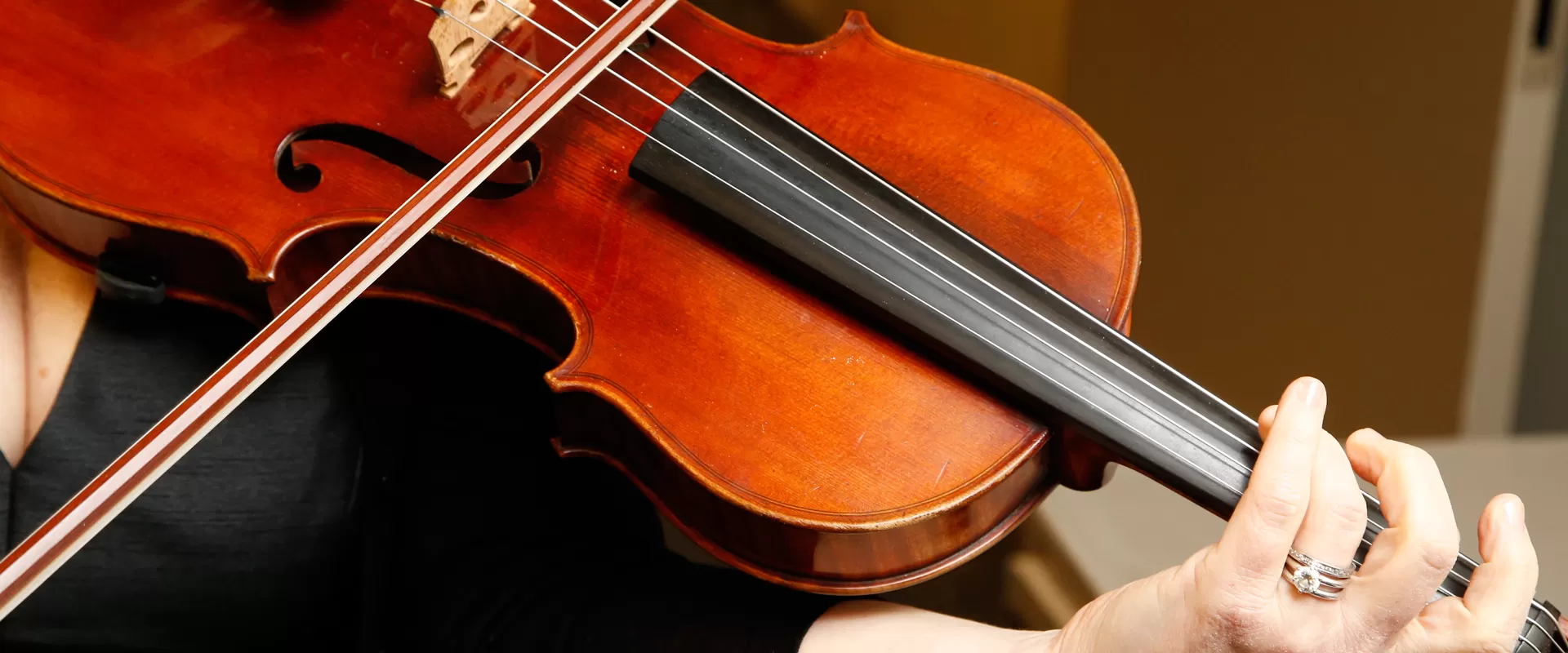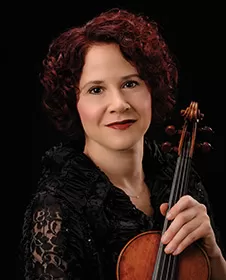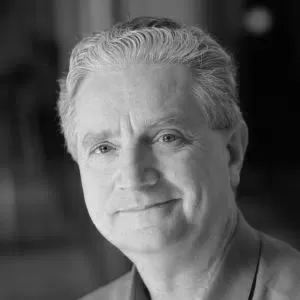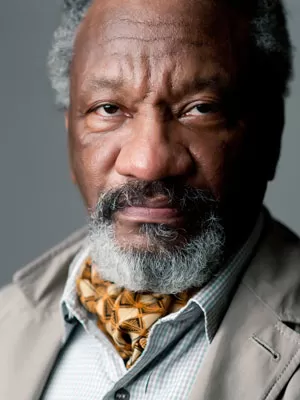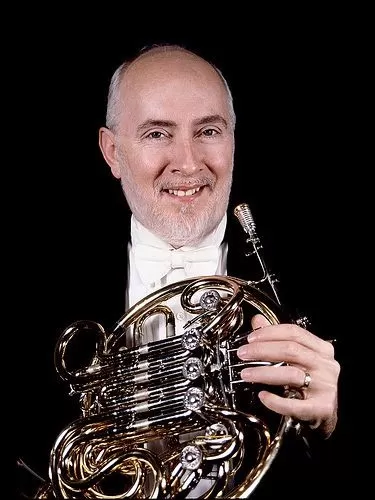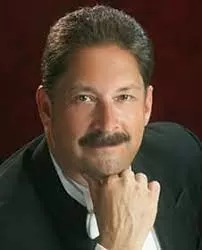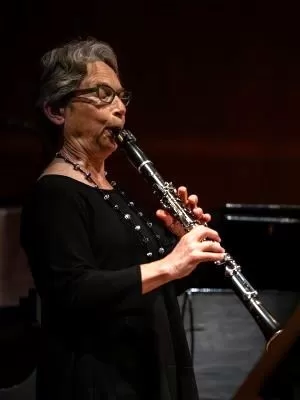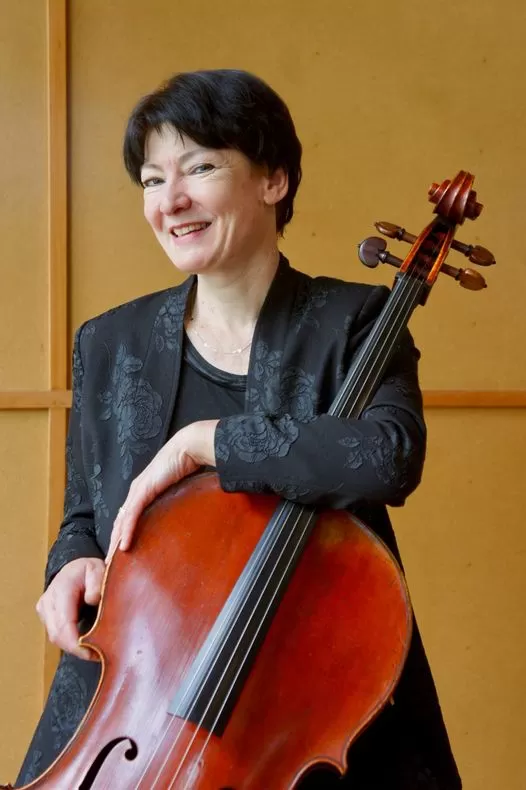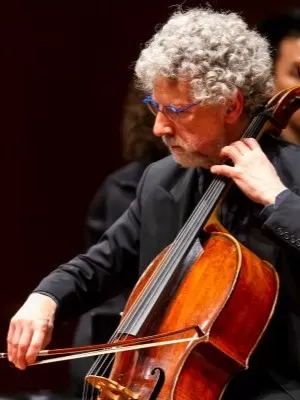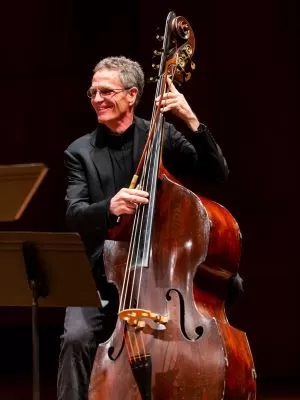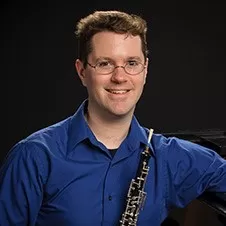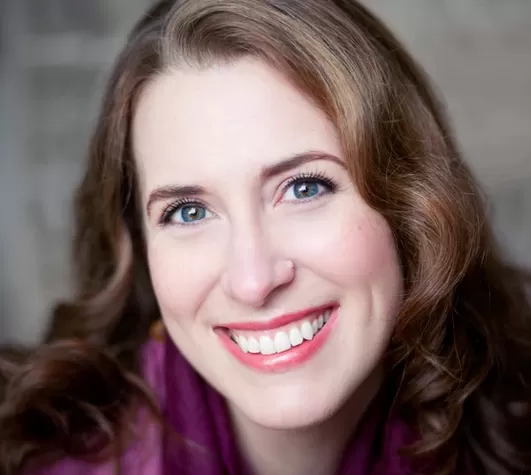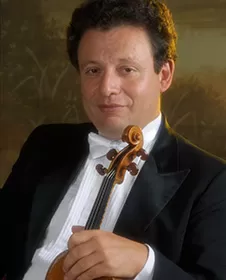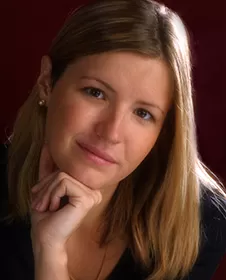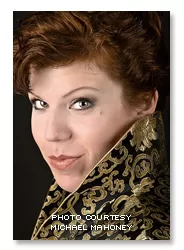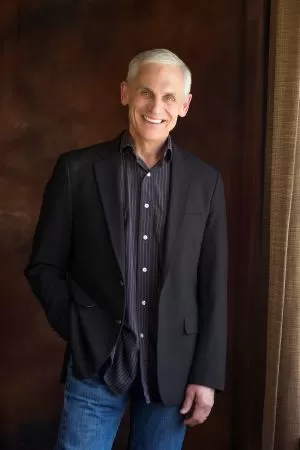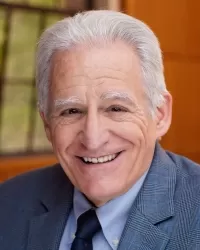May 11, 2009 - 12:00 pm
Mirror of Memory
A concert to commemorate Holocaust Remembrance Day
Illsley Ball Nordstrom Recital Hall at Benaroya Hall
6:45 p.m. Meet the Guest Artist: Choreographer Donald Byrd
7:30 p.m. Concert Begins
For our spring 2009 concert, MOR presented a new commission from Israeli composer Aharon Harlap, his "hauntingly beautiful" Pictures from the Private Collection of God scored for two voices, narrator, string quintet and oboe in this world premiere. Inspired by poetry of Holocaust survivor Yaakov Barzilai, the work was sung by Northwest opera stars baritone Erich Parce and mezzo soprano Angela Niederloh. Spectrum Dance Theater’s Donald Byrd choreographed for us a new dance for The Wind, a captivating work by Franz Schreker, one of the composers banned by the Nazis. We also reprised Betty Olivero's stunning choral arrangements Shtiler, Shtiler and Mode’ Ani’, performed by the exceptionally talented Northwest Boychoir. Osvaldo Golijov intended his serene, sorrowful Tenebrae, like the Earth, to be beautiful from afar, but with a pain that is revealed when one looks more closely. We also celebrated Cosmic Spring, written in the Kovno Ghetto by little-known German composer Edwin Geist, who was shot to death by the Gestapo in 1942.
Osvaldo Golijov
Tenebrae (2002)
Emily Hindrichs, soprano
Laura DeLuca, clarinet; Mikhail Shmidt, violin; Leonid Keylin, violin; Arie Schächter, viola; Mara Finkelstein, cello
Edwin Geist
Cosmic Spring (1942)
Leonid Keylin, violin; Mara Finkelstein, cello; Mina Miller, piano
Franz Schreker
The Wind (1909)
Donald Byrd, choreography
* World premiere of choreography commissioned by Music of Remembrance
Mikhail Shmidt, violin; Laura DeLuca, clarinet; John Cerminaro, horn; Walter Gray, cello; Craig Sheppard, piano
Betty Olivero
Shtiler, Shtiler and Mode’ Ani’ (1995)
Erich Parce, baritone
Laura DeLuca, basset horn & clarinet; Valerie Muzzolini, harp
The Northwest Boychoir, Joseph Crnko, conductor
Aharon Harlap
Pictures from the Private Collection of God (2009)
World premiere of arrangement commissioned by Music of Remembrance
Erich Parce, baritone; Angela Niederloh, mezzo soprano; Kurt Beattie, narrator
Mikhail Shmidt, violin; Elisa Barston, violin; Arie Schächter, viola; Walter Gray, cello; Jonathan Green, double bass; Ben Hausmann, oboe.
About the Music
Tenebrae (2002)
Osvaldo Golijov
(b. La Plata, Argentina, 1960)
Osvaldo Golijov offers the following remarks:
I wrote Tenebrae as a consequence of witnessing two contrasting realities in a short period of time in September 2000. I was in Israel at the start of the new wave of violence that is still continuing today, and a week later I took my son to the new planetarium in New York, where we could see the Earth as a beautiful blue dot in space. I wanted to write a piece that could be listened to from different perspectives. That is, if one chooses to listen to it "from afar," the music would probably offer a "beautiful" surface but, from a metaphorically closer distance, one could hear that, beneath that surface, the music is full of pain. I lifted some of the haunting melismas from Couperin's Troisieme Leçon de Tenebrae, using them as sources for loops, and wrote new interludes between them, always within a pulsating, vibrating, aerial texture. The compositional challenge was to write music that would sound as an orbiting spaceship that never touches ground. After finishing the composition, I realized that Tenebrae could be heard as the slow, quiet reading of an illuminated medieval manuscript in which the appearances of the voice singing the letters of the Hebrew Alphabet (from Yod to Nun, as in Couperin) signal the beginning of new chapters, leading to the ending section, built around a single, repeated word: Jerusalem.
Osvaldo Golijov, composer, is currently Loyola Professor at the College of the Holy Cross in Worcester, Massachusetts, where he has taught since 1991. Born in La Plata, Argentina, he moved to Israel in 1983, where he studied with Mark Kopytman at the Jerusalem Rubin Academy, and to the U.S. in 1986, earning his Ph.D. at the University of Pennsylvania. There he studied with George Crumb, and was a fellow at Tanglewood, studying with Oliver Knussen. Named the first composer-in-residence for the Mostly Mozart Festival at Lincoln Center (2007), Golijov is co-composer-in-residence with Marc-Anthony Turnage at the Chicago Symphony Orchestra. He has also been composer-in-residence at the Spoleto USA Festival, the Los Angeles Philharmonic’s Music Alive series, Marlboro Music, Ravinia, Ojai, and several other festivals. In 2005, the European Broadcasting Union televised Golijov’s TEKYAH, a work commissioned by the BBC for a film commemorating the 60th anniversary of the liberation of Auschwitz-Birkenau. In 2006 Lincoln Center presented a festival called “The Passion of Osvaldo Golijov,” featuring multiple performances of his major works and chamber music. Also in 2006, a recording of his opera Ainadamar won two Grammy awards. Recent projects include Azul, a cello concerto for Yo-Yo Ma and the Boston Symphony; and the soundtrack for Francis Ford Coppola’s Youth Without Youth. Current work includes another collaboration with Coppola and a new opera, commissioned by the Metropolitan Opera.
Cosmic Spring (1942)
Edwin Geist
(b. Berlin 1902–d. Kovno Ghetto, Lithuania 1942)
The composer’s niece, Rosian Zerner, offers the following remarks:
Edwin Geist was a German half-Jew forced to leave Germany to work in Lithuania where he married the Jewish pianist, my aunt Lyda Bagriansky. The Nazis followed him to Lithuania, and the couple was interned with me and the rest of the family in the Kovno Ghetto. Edwin might have been able to save himself, but wanted to be with his wife. He finally agreed to leave the Ghetto, promising to free Lyda, and devoted himself to making this happen.Cosmic Spring was first performed on the day Lyda was released from the Kovno Ghetto to join Edwin. He had yearned for her freedom, writing a loving daily diary for her though he was constantly being disillusioned by delays and excuses. She came to him on August 31, 1942. On December 10, 1942, Edwin was murdered by the Nazis, and Lyda, unable to live without him, committed suicide weeks after.Cosmic Spring was the adagio section of the unfinished Tanzlegendchen (Little DanceLegend), a pantomime for large orchestra based on the legend of Gottfried Keller (1857–1872). It was composed under harsh conditions of deprivation while waiting for Lyda, and performed privately in honor of her arrival by a trio with whom Edwin occasionally played. Three other good friends joined in the celebration of this “premiere,” and the joyful, albeit short-lived reunion offered a respite from the horrors of the Holocaust.
The Wind (1909)
Franz Schreker
(b. Monaco 1878–d. Berlin 1934)
World Premiere of Choreography, Donald Byrd
May 11, 2009, Benaroya Hall, Seattle, WA
at Music of Remembrance’s Holocaust Remembrance Concert
Commissioned by Music of Remembrance, Mina Miller, Artistic Director
The Wind
Gently he gets up and the leaves tremble softly,
he moves the saplings–they have to bow to him!
Young people dance, driven by the wind, on the
wind, they think they are flying with him.
The wind gets wilder, he seizes the branches and
they blow up and down, shaking.
People, too, are swept along with this motion,
they run into the wind, laugh with him,
throw themselves at him, beside themselves now,
completely immersed in the wind’s game.
The wind becomes a tempest, serious and
violent–the people cling to each other to brace
themselves against him–all is struggle.
The great strong tree falls. The storm is over,
the leaves just tremble softly.
This poem, by ballerina Grete Wiesenthal, appeared in the concert program for the 1910 premiere in Vienna of Franz Schrecker’s The Wind. Inspired by Wiesenthal’s ideas, Schrecker composed this chamber work between 1908–09 for her own dance, a style incorporating the more abstract art forms of mime and pantomime. The chamber work, a gestural depiction of the vivid character of a strong wind, was an innovative collaboration between composer and choreographer.
Franz Schreker, one of the earliest musical targets of Nazi persecution, was born in 1878 to a Jewish father, Ignaz Schrecker, and a Catholic mother, Eleonore von Clossmann. His fame and influence were at their peak during the politically and economically unstable years at the start of the Weimar Republic. By1920, Schreker was, after Richard Strauss, the most frequently performed living opera composer in the Weimar Republic. He became director of the Hochschule für Musik in Berlin in autumn 1920, and helped transform it into the pre-eminent conservatory of its day. But with the rise of Nazism, Shrecker was targeted for his Jewish origins, his avant-garde style, and his progressive politics. Performances of his works provoked scandals, and became increasingly rare. In June 1932, he was forced to resign his position at the Hochschule, not only for his own Jewish roots, but also because he was unwilling to comply with the discriminatory policies against Jewish faculty members, including such international artists as Carl Flesch, Eduard Steuermann, and Arthur Schnabel. Schrecker suffered a stroke in 1933, and died the following year at age 56. With no one to champion his work, his career was left a footnote in music history. After a half-century of obscurity, Schreker’s extraordinary music has struck the eyes and ears of performers and audiences discovering the composers and music once banned by the Nazis as “degenerate.” These admirable efforts are beginning to shed long-awaited light on a nearly lost legacy of music between the World Wars.
Music of Remembrance expresses deep gratitude to Donald Byrd, Artistic Director of Spectrum Dance Theater, for enabling this artistic collaboration.
Shtiler, Shtiler (1995)
Mode’Ani’ (1995)
Betty Olivero
(b. Tel Aviv, Israel, 1954)
Shtiler, Shtiler
Poem by Shmerke Kaczerginski, (Vilna Ghetto, April 1943)
English translation from the Yiddish: David G. Roskies
Shtiler, shtiler, lomir shvaygn,
Kvorim vaksn do.
S’hobn zey farflantst di sonim:
Grinen zey tsum blo,
S’firn vegn tsu ponar tsu,
S’firt keyn veg tsurik,
Iz der tate vu farshvundn
Un mit im dos glik.
Shtiler, kind mayns,
Veyn nit, oyster,
S’helft nit keyn geveyn,
Undzer umglik veln sonim
Say vi nit farshteyn.
S’hobn breges oykh di yamen,
S’hobn tfises oykhet stamen,
Nor tsu undzer payn
Keyn bisl shayn,
Keyn bisl shayn.
Still, still, let us be still.
Graves grow here.
Planted by the enemy,
they blossom to the sky.
All the roads lead to Ponar,
and none returns.
Somewhere father disappeared,
disappeared with all our joy.
Be still, my child, don’t cry, my treasure;
tears are of no avail.
No matter the fury of your tears,
the enemy will not notice.
Rivers open into oceans,
prison cells are not a world,
but to our sorrow,
there is no end,
there is no light.
Mode’Ani’
Moyde ani lefonekho
Got mit tzorn
zevos fun dayn kind is
in der fremd gevorn
shvere yorn
Ich gedenkmer nit di tfile
Moyde ani lefonekho
"I give thanks before you..."
God, do not be angry
See what has become of your child
in foreign (places)
Hard years, many lands
I can no longer think of the prayer
"I give thanks before you..."
Betty Olivero offers the following remarks:
Mode’ Ani’ is a Jewish prayer recited upon awakening in the morning to thank the Creator for breathing the soul into the body once again. In this work, only the first part of the prayer is heard. The voice is that of a Holocaust survivor, horrified, after many years of agony and misfortune, at having forgotten the rest of the prayer that always used to come as naturally to him as breathing.
Shtiler, Shtiler – Eleven year-old Alex Wolkoviski wrote a prize-winning song for a contest in the Vilna ghetto, with words added by Shmerke Kaczerginski. In the style of a lullaby, the song asks the children to be quiet and endure the dangers and frustrations of ghetto life. It promises them that they will be freed in time and allowed to celebrate as they wish. Alex Wolkoviski, known today by the name of Tamir, still works as a musician in Israel.
Betty Olivero, composer, was born in Tel-Aviv, Israel, lived in Florence, Italy, for most of her career, and now lives in Israel. She is an associate professor of composition at the Music Department in Bar-Ilan University and composer-in-residence for the Jerusalem Symphony Orchestra. Upcoming world premieres include a commission for the Judaica Division of Harvard University to commemorate the 60th anniversary of the State of Israel, a commission for the Chicago Symphony Orchestra’s 2008-09 season, and a commission for Music of Remembrance for two voices and string quartet, set for fall 2010. Inspired by ancient Jewish and other early musical traditions—Judeo-Spanish, Arab, and medieval music—her music employs both contemporary and avant-garde compositional forms. Her compositions have been performed by the Chicago Symphony Orchestra, New York Philharmonic Orchestra, Israel Philharmonic Orchestra, BBC Symphony Orchestra, London Sonfonietta, Amsterdam Sinfonietta, Juilliard Ensemble, and Arditti Quartet, and at many major European, North American and Asian festivals. She studied at Jerusalem’s Rubin Academy of Music, at Tel Aviv University and Bar-Ilan University (with Itzhak Sadai and Leon Shidlowsky), and at Yale University (with Jacob Druckman and Bernard Rands). In 1982, at Tanglewood, she worked with Luciano Berio, with whom she studied for three more years. Olivero has been awarded the Fromm Award, Koussevitzky Award, Israel’s Prime Minister’s Prize (2001), Rosenblum Award for the Performing Arts, Landau Award for the Performing Arts, and ACUM Prize for Life Achievements.
Pictures from the Private Collection of God (2009)
Music by Aharon Harlap, Poetry by Yaakov Barizlai
World Premiere of Arrangement for String Quintet, Oboe and Voices
May 11, 2009, Benaroya Hall, Seattle, WA
at Music of Remembrance’s Holocaust Remembrance Concert
Commissioned by Music of Remembrance
Dedicated to Mina Miller, MOR’s founder and artistic director
Pictures from the Private Collection of God
Poetry by Yaakov Barzilai (b. Debrecen, Hungary 1933)
English translation from the Hebrew: Riva Rubin
- The Yearnings beggar
When God
douses the stars at night
and the streetlights doze
I light up,
illuminate the alleys of my life
and all the dead see me
passing from door to door
collecting alms of yearning.
- Lower than the sea, deeper than eternity
(on the 50th anniversary of the liberation of Bergen – Belsen)
Father and daughter
lie together
in the light of day,
a sunbeam in heat
flirtatious
on the hand flung
on her breast;
a mother crouches
over her son,
her head
on his cold lap
at rest.
The pit… lower than the sea
deeper than eternity… fills slowly
with lovelorn corpses
forever entwined… twisted
like Sabbath loaves.
- There are no stars in the sky
“Why are there no stars in the sky?”
the children of God inquired,
“And why even lamps do not shine there either?”
the children repeatedly wondered.
“And if there are no stars
or lamps
then, how can God see
when we wash in the shower?”
“He doesn’t see in the dark”
the angels responded.
And it was the truth,
when the faucets were open
that God didn’t see
they didn’t have water.
And never again
did the children ask
“Why?”
- Bad mother
We stood on the Bergen-Belsen
parade ground watching the swinging boys
on the hanging posts.
My sister thought she was in a playground
and indicated to mother that she also wanted to swing.
When mother refused to take her to the swings
she whispered in her ear:
“See, I’ve always known you don’t love me.”
- God’s step-daughter
My life
wasn’t spread with honey
on any side.
From birth
I’ve been step-daughter
to God.
I grew up in a thorn patch
and my body’s like
a map of scars.
Never
have I seen the sun
in its glory
and if it did smile at me,
then only from its dark side,
and on the day
of the eclipse
my body was witness
to my soul’s
execution.
My one and only daughter,
curls as golden
as the face of the standing corn
when its ears are ripening
for the harvest.
And I remember
her head lay on my shoulder
and I
kneeling and bleeding
my plea
before a pair of boots,
a couple of gloves,
a lash.
At a flick of the whip
my daughter
was torn from me
and I heard her
cry:
“Mother, cast a spell for me mother,
return me
to your womb!”
And afterwards,
it seemed her curls
blended with the corn
whose ears had ripened
and the harvester
gleaned his yield.
Aharon Harlap offers the following remarks:
Pictures from the Private Collection of God is the first in a series of three song cycles I have set to the dramatically powerful poems of Yaakov Barzilai. I have attempted to set to music the world of a Holocaust survivor, a world of emotional intensity inundated with bitter nostalgia, grotesque imagery, sadness, a child's pure innocence, irony and death. This genuine intensity influenced and inspired my melodic and harmonic language almost naturally throughout, as if the text and the music belonged intrinsically together from the very beginning. It is my hope that the combination of the warmth and dramatic qualities of the string quintet, the pungent and intensely mournful sound of the oboe, and the power of the human voice, will all contribute to the impact of this work. The idea for this new arrangement was initiated by Mina Miller, Artistic Director of Music of Remembrance, and is dedicated to her in deep gratitude.
Aharon Harlap is one of Israel’s most prominent composers and conductors. Born in Canada, he began his musical career as a pianist, and in 1964 immigrated to Israel. Widely known as an orchestral, operatic, and choral conductor, Harlap has appeared as guest conductor in Canada, the U.S., Europe, and South Africa. In Israel he has appeared as guest conductor with the Israel Philharmonic, the Haifa Symphony Orchestra, the Israel Chamber Orchestra, and the Jerusalem Symphony Orchestra. A prize-winning composer, Harlap has a fruitful connection to the poetry of Yaakov Barzilai, a Holocaust survivor originally from Hungary. His three song cycles employing Barzilai’s poems include Pictures from the Private Collection of God, My father will no longer bless the bread, and Letters Weeping in Fire. Harlap’s opera Wings, based on the writings of Gibran Khalil Gibran, received its 2005 world premier performance by the Israel Chamber Orchestra. His viola concerto dedicated to the international violist Rivka Golani received its premier performance in May 2007 with the Dohnanyi Orchestra, Budapest. Harlap is a Senior Lecturer in Conducting at the Jerusalem Academy of Music, where he also heads the Opera Department. He has been music director and conductor of the Kfar Saba Chamber Choir since 1997. In 2008 Harlap received the Life Achievement Award from ACUM (Composers and Authors in Israel) for his contributions to music in Israel.
